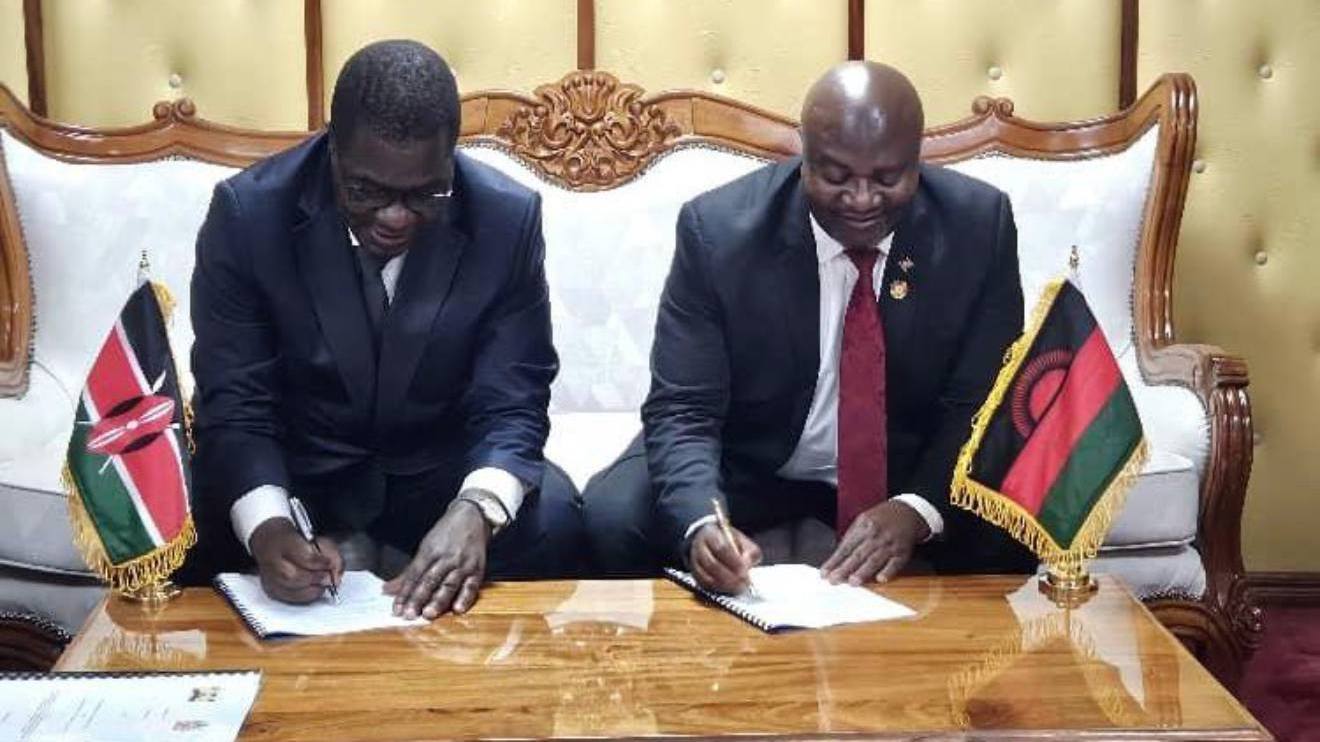The governments of Kenya and Malawi have officially inked an agreement aimed at enhancing cooperation in the petroleum sector, opening new avenues for stable fuel supply and bulk petroleum imports.
The Memorandum of Understanding (MoU), which has a five-year duration, was signed on Tuesday in a high-level commitment following preliminary discussions between President William Ruto of Kenya and President Lazarus Chakwera of Malawi at the United Nations General Assembly in New York this past September.
Energy and Petroleum CS Opiyo Wandayi formalised the agreement, while Malawi’s Energy Minister, Ibrahim Matola, represented his government.
The State Department for Petroleum highlighted that this partnership will serve as a critical foundation for a steady supply of petroleum products in both nations, providing security and consistency in the energy sector.
According to the State Department, the MoU also strengthens Kenya’s fuel security by supporting currency stability through direct, government-to-government (G-to-G) transactions, minimising the volatility often seen in foreign exchange markets.
Read More
“This MOU will remain valid for five years or until terminated by either party in accordance with its terms,” remarked a Kenyan official, reaffirming the commitment of both nations to the terms of the agreement.
Kenya has utilised similar G-to-G frameworks in the past to mitigate currency pressures. In an earlier arrangement, Kenya partnered with three Gulf oil firms to ensure a steady supply of petroleum products.
In this agreement, Gulf companies committed to supplying fuel over a six-month period, with appointed Kenyan suppliers managing importation and payments structured in dollars, while local stakeholders transacted in Kenyan currency.
Originally set to conclude in April 2023, the Gulf deal was later extended to December 2024 to continue supporting the local economy.
This new agreement with Malawi now adds another layer to Kenya’s strategy for managing energy imports and currency stability, underscoring both governments' intent to strengthen their economic resilience while expanding their collaborative potential in the petroleum sector.







-1757663582.jpeg)
